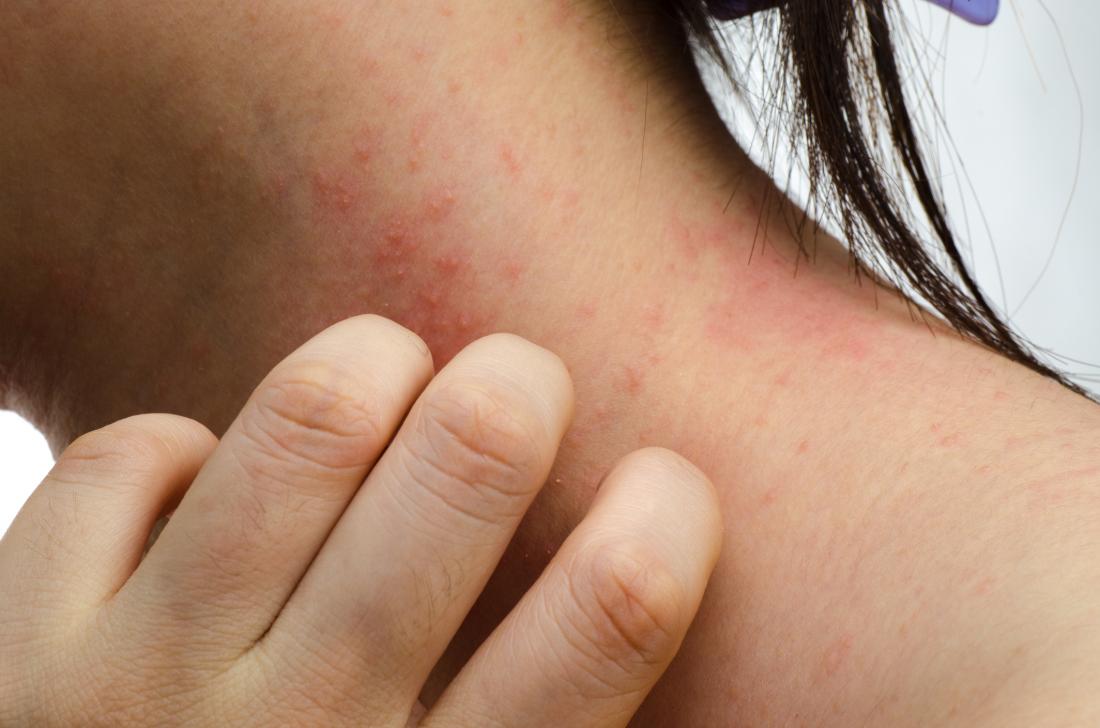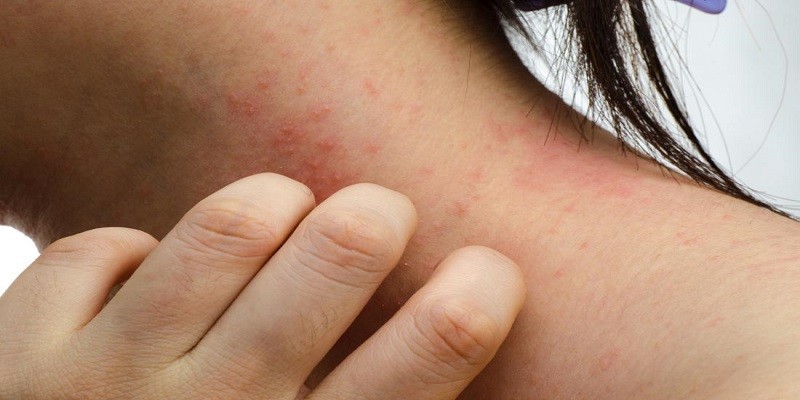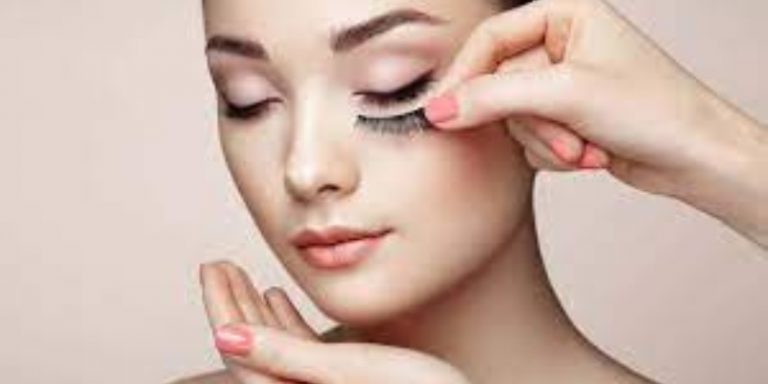How To Treat Allergic Reaction To Synthetic Hair?
Last Updated on June 18, 2025 by Jaclyn A. Neeley
The best way to treat an allergic reaction to synthetic hair is to first identify the cause of the problem. If you know that it’s caused by a particular type of synthetic fiber, try switching to a different type. Additionally, if you think it might be coming from adhesive used on wigs or extensions, consult a professional stylist who can suggest non-allergenic products.
Once the cause has been identified and avoided in the future, antihistamines may help reduce symptoms such as itching and redness. It’s also important to wash your scalp with gentle cleansers and use moisturizers that are free from harsh chemicals or fragrances. Finally, avoid any further contact with synthetics until your symptoms have completely subsided.
- Identify the Cause: If you are experiencing an allergic reaction to synthetic hair, it is important to first identify what caused it. Look at the type of synthetic material used and determine whether or not it contains any known allergens. Common culprits include latex, silicone, formaldehyde, and glues used in bonding/weaving processes.
- Remove Hair Immediately: Once you’ve identified that your allergic reaction was due to a particular type of synthetic hair product, remove the item immediately from your scalp or skin area where the product has been applied. This will help reduce further irritation or swelling that may occur with continued contact with the allergen source.
- Cleanse Skin & Scalp: Use lukewarm water and gentle cleansers (such as baby shampoo) to wash away any remaining traces of the allergenic substance from your skin/scalp area before applying topical corticosteroids for relief from itching and inflammation if necessary.
- Apply Topical Steroid Creams: In order to treat any associated redness or swelling that may have occurred due to contact with an allergen found in a certain type of synthetic hair product, apply mild topical steroid creams such as hydrocortisone 1% directly onto affected areas as needed until symptoms subside (be sure to follow package instructions when using).
- Visit Your Doctor: For persistent reactions that do not respond well to home treatments such as those mentioned above; seek medical attention right away so doctors can provide more aggressive treatment options if needed.
Skin Allergic Reaction to Synthetic Hair
Having an allergic reaction to synthetic hair can be a common problem when wearing extensions and wigs. Symptoms may include redness, dryness, itching, hives or rashes on the scalp and neck area. If you experience any of these symptoms after wearing synthetic hair products, it is important to stop using them immediately and consult with a medical professional for further advice.

Credit: www.medicalnewstoday.com
What Happens When You are Allergic Synthetic Hair?
When you are allergic to synthetic hair, it can be a very uncomfortable and irritating experience. Symptoms of an allergic reaction range from redness, swelling and itching to hives or rashes on the scalp. In severe cases, it may even cause anaphylaxis which is life-threatening.
It’s important to identify the source of your allergy before using any type of synthetic hair product in order to prevent further reactions. Treatment for an allergic reaction includes antihistamines as well as possibly avoiding products with synthetic fibers altogether. If you have experienced this kind of reaction before then it’s likely that you’ll need to find alternative styling solutions such as natural haircare products and wigs made from human hair instead of synthetic materials in order to avoid any potential complications in the future.
What Does Synthetic Hair Allergy Look Like?
Synthetic hair allergies are becoming increasingly more common, especially in women. Symptoms of a synthetic hair allergy can range from mild to severe and vary from person to person. The most common signs of a synthetic hair allergy include skin reactions such as redness, itching, hives or rashes at the point where the artificial fibers come into contact with the skin.
In some cases these reactions may be accompanied by swelling of the area around the scalp or face, difficulty breathing, sneezing or coughing due to an allergic reaction taking place in your respiratory system. Additionally, people with a synthetic hair allergy may also experience headaches and fatigue due to prolonged exposure to irritants found within certain types of artificial materials used in wigs and extensions. It is important that if you think you may have an allergic reaction to any type of fake hair product that you take note of any symptoms experienced so that proper medical attention can be sought out if necessary.
How Do I Stop My Scalp from Itching from Synthetic Hair?
If you’re wearing synthetic hair and your scalp is itching, the good news is that there are some easy steps you can take to help get rid of the irritation. First and foremost, it’s essential that you wash your synthetic hair properly. Use a gentle shampoo specifically designed for synthetic fibers and avoid using hot water as this can make the fabric brittle over time.
It’s also important to condition your extension regularly (at least once per week) with a light moisturizing product designed for synthetic hair; this will help to keep it soft and supple while reducing any scalp irritation. Additionally, try not to wear tight hairstyles too often as they may pull on the scalp or irritate sensitive skin even further. If possible, opt for styles that use clips rather than elastic bands which can be uncomfortable after extended periods of time.
What to Do If You Have an Allergic Reaction to Hair Extensions?
If you’ve recently had an allergic reaction to hair extensions, it is important to take the proper steps to ensure that your health and safety are not at risk. The first thing you should do is stop wearing the hair extensions immediately and seek medical attention if necessary. You may need a topical or oral antihistamine for relief of itching, swelling or other symptoms associated with allergies.
Additionally, avoid contact with any synthetic fibers in the future as those can be more likely to cause reactions than natural fibers like human hair. If possible, try switching brands of hair extensions so that only hypoallergenic products come into contact with your scalp and skin. Finally, consider investing in a wig made from real human hair as this would provide an allergy-free alternative while still giving you great looking locks!
ALLERGIC REACTION TO SYNTHETIC BRAIDING HAIR!?- Remedy+Relief
Conclusion
In conclusion, there are a few important steps to take if you experience an allergic reaction to synthetic hair. First, make sure to stop using the product immediately and remove it from your body or home. Secondly, seek medical attention as soon as possible for any skin irritation or other symptoms you may be experiencing due to the allergy.
Finally, try natural alternatives such as human hair wigs and extensions instead of synthetic ones in order to prevent future reactions. With these simple steps in mind, you can safely enjoy the hairstyle of your choice without worrying about having an allergic reaction again!







